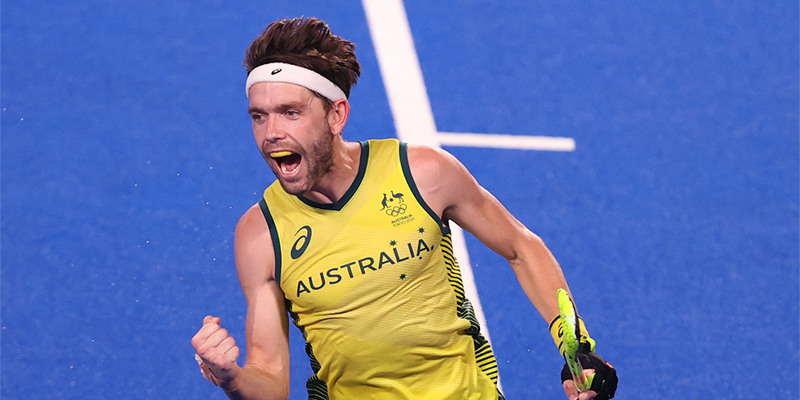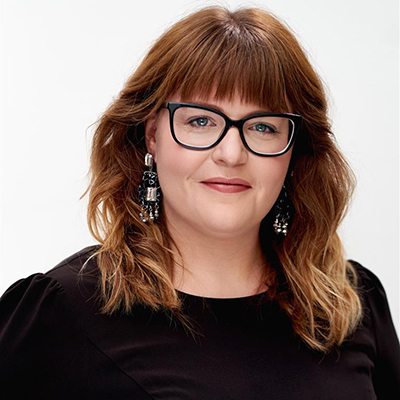Olympic medal hopes for sonography student prove ‘ultra sound’
By Adam Joyce
 COMMUNITY UniSA Medical Sonography student Flynn Ogilvie is a member of the Australian national men's hockey team and took home silver at the Olympic Games in Tokyo.
COMMUNITY UniSA Medical Sonography student Flynn Ogilvie is a member of the Australian national men's hockey team and took home silver at the Olympic Games in Tokyo.For UniSA student and national men’s hockey team player Flynn Ogilvie, competing in his first Olympic Games was an incredible experience, but it was the support the team received from Australians that meant the most.
Ogilvie, who’s a midfielder for the Kookaburras, says winning silver in Tokyo was something of a double-edged sword. Ogilvie was one of four UniSA students and a recent graduate competing in Tokyo across the fields of shooting, hockey, swimming, and cycling. Between them, the athletes achieved two silver medals and three bronze medals as well as personal bests.
“Winning silver was initially very disappointing – wining bronze is often a happier experience – but as time went on and we were receiving message after message from people back home, it was really uplifting,” he says.
“As hockey players, we don’t tend to get that much interest in what we do but after the Olympics we were receiving congratulatory messages from all sorts of people.”
The 28-year-old is studying a Graduate Diploma in Medical Sonography with UniSA.
“My undergraduate degree was in exercise science and I have a strong interest in anatomy and physiology but it’s hard to find a lot of work compatible with professional hockey so I decided to pursue more study,” Ogilvie says.
His girlfriend is a vascular sonographer and after looking into options, he decided to study at UniSA.
“UniSA had the best medical sonography course of its type in Australia,” he says.
The national men’s hockey team is based in Perth so Ogilvie is studying externally and says he’s enjoying the course.
“It does have its challenges – you have to be quite self-motivated to get work done but personally I love it,” he says. “Because of training, I’ve never had a lot of time to be able to go on campus anyway, whereas learning online helps me fit my studies around work and training.”
Competing in Tokyo without a crowd was a strange experience but meant there were fewer distractions.
“But having fans there creates such a good feeling on the field so we certainly missed that.”
Ogilvie says his coursework provided a useful focus while completing 14-day hotel quarantine after returning to Australia in August.
“For the six to eight weeks before the Games my focus had only been on hockey so I had lots of uni to catch up on and that kept me entertained for most of the time [in quarantine].”
His next major competition will be the Commonwealth Games, which are being held in Birmingham in July 2022, but Ogilvie already has his sights on the 2024 Olympic Games in Paris.
Ogilvie is part of UniSA’s Elite Athlete and Performer Program, which supports emerging and elite athletes and performers to achieve academic excellence while also pursuing a professional career in sports or performing.

The coordinator of the Elite Athlete and Performer Program, Brooke Zabrowarny, says the program provides tailored academic support to about 250 students who represent around 50 sports and performing disciplines.
For example, the program offers participants flexible study options, such as rescheduling an assessment or placement.
“It may seem like a simple thing, but students are always so grateful when we can help work around their training schedule with their placement requirements, or when a competition has meant last minute travel, and we work together to figure out when and where assessment can take place,” Zabrowarny says.
“We aim to help strike the right balance between work, life and sporting/performing commitments and understand that anything can change at a moment’s notice when it comes to an athlete or performer’s schedule.
“Around Olympic selections time there was a flurry of activity, to either arrange alternative assessments, drop enrolments, add enrolments in future study periods, provide advice on online study opportunities, and subsequently to assist with media enquiries.
“I felt so much pride watching UniSA’s students and graduate compete at the Olympics; I have so much respect for their drive and ability to successfully coordinate the complexities and workloads of both study and competing at such an elite level.”
Regardless of sporting abilities, all staff and students can access the University’s sport and recreation facilities through UniSA Sport. Established in 2013, UniSA Sport supports and delivers sport and active recreation opportunities through on campus facilities, affiliated clubs and intervarsity sport.
UniSA’s Olympians
- Flynn Ogilvie, studying a Graduate Diploma in Medical Sonography, men’s hockey – silver medal
- Alex Porter, studying Bachelor of Commerce (Accounting) and a Bachelor of Business (Finance), track cycling, team pursuit – bronze medal
- Kyle Chalmers, studying a Bachelor of Business (Sport and Recreation Management) – swimming, silver medal men’s 100m freestyle, bronze medal men’s 4x100m freestyle relay, bronze medal men’s 4x200m freestyle relay
- Katarina Kowplos, studying a Bachelor of Information Technology, shooting, 45th in women’s 10m air rifle, 36th in women’s 50m rifle 3 positions, 22nd in 10m air rifle mixed team
- Matthew Glaetzer, graduated 2021 with a Diploma in Health Studies, track cycling, 4th in men’s team sprint finals, 5th in men’s keirin (individual)
 (L-R) Alex Porter, Kyle Chalmers, Katarina Kowplos and Matthew Glaetzer
(L-R) Alex Porter, Kyle Chalmers, Katarina Kowplos and Matthew GlaetzerOther Stories
- Accenture and UniSA join forces to develop the digital business skills of tomorrow
- New ‘Goldilocks calculator’ could be key to ensuring children’s health
- Pioneering tech enables monitoring of a baby’s vital signs without contact
- Three minute thesis winner to make ovarian cancer treatment more effective
- From the Vice Chancellor
- Achievements and Announcements
- Olympic medal hopes for sonography student prove ‘ultra sound’
- UniSA launches guide to foster respectful engagement with Aboriginal Peoples
- Video: Innocent or guilty? Virtual reality gives us the verdict
- Meet the UniSA student who’s risen to footballing fame with the Crows
- The latest books from UniSA researchers
- In Pictures: Purkarninthi in Residence art installation launch and 2021 Art on Campus Exhibition




